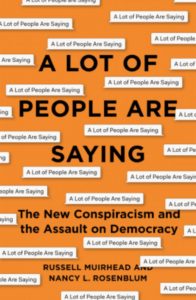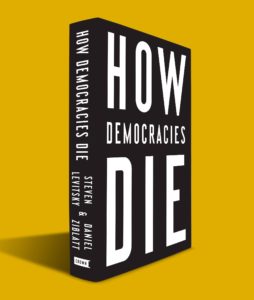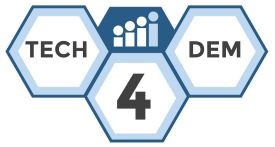 GONE ARE the days when conspiracy-mongers had to find shards of evidence and contort it to convince people. Now, just their malevolence is needed. If a concocted scenario can’t be proved, then perhaps it can’t be disproved either. That is toxic for a stable society and politics. So how did we get here, and how do we get out? The Economist asks:
GONE ARE the days when conspiracy-mongers had to find shards of evidence and contort it to convince people. Now, just their malevolence is needed. If a concocted scenario can’t be proved, then perhaps it can’t be disproved either. That is toxic for a stable society and politics. So how did we get here, and how do we get out? The Economist asks:
Nancy L. Rosenblum of Harvard University and Russell Muirhead of Dartmouth College are the authors of “A Lot of People Are Saying: The New Conspiracism and the Assault on Democracy” (Princeton, 2019). Though conspiracy theories have always existed, they note that today something is different and dangerous: “Conspiracy without the theory.”
“Its proponents dispense with evidence and explanation. Their charges take the form of bare assertion,” they explain in an interview. “It is a powerful force, with the capacity to animate popular fury, to delegitimise political opposition, and to hijack government institutions.”
 “We have argued that the new conspiracism is itself a threat to democracy. In the context of what is referred to as the literature on ‘how democracies die’ we don’t propose the new conspiracism as a sufficient way of framing what happening,” they write:
“We have argued that the new conspiracism is itself a threat to democracy. In the context of what is referred to as the literature on ‘how democracies die’ we don’t propose the new conspiracism as a sufficient way of framing what happening,” they write:
The counter-force comes from the authority of knowledge-producing institutions (that is, courts, expert-staffed agencies, research universities) on one side, and democratic common sense on the other. Wherever conspiracism is reshaping public life, two preventatives are vital: to defend the integrity of knowledge-producing institutions and bolster confidence in the ballast of common sense…..
The new conspiracism is not the engine of every crisis of democracy, nor does it figure in every crisis of democracy. Malignancy abounds, and not all degradations of democracy go together. The new conspiracism is more than simply an offshoot or epiphenomenon of other forces such as authoritarianism or strident populism. Once it secures a foothold in public life, conspiracism has independent force. RTWT

Source: Public Radio of Armenia
Two forces are likely to push new technologies in a direction whereby they are adaptive rather than hubristic, designed to empower society rather than silence it, argues Daron Acemoglu, Professor of Economics at MIT, co-author (with James A. Robinson) of Why Nations Fail: The Origins of Power, Prosperity and Poverty and The Narrow Corridor: States, Societies, and the Fate of Liberty 2019.
- The first is the market, which may act as a barrier against misguided top-down schemes. …That said, the power of the market constraint should not be exaggerated. There is no guarantee that the market will select the right technologies for widespread adoption, nor will it internalize the negative effects of some new applications. The fact that Facebook exists and collects information about its 2.5 billion active users in a market environment does not mean we can trust how it will use that data. The market certainly doesn’t guarantee that there won’t be unforeseen consequences from Facebook’s business model and underlying technologies.
 For the market constraint to work, it must be bolstered by a second, more powerful check: democratic politics. Every state has a proper role to play in regulating economic activity and the use and spread of new technologies. Democratic politics often drives the demand for such regulation. It is also the best defense against the capture of state policies by rent-seeking businesses attempting to raise their market shares or profits.
For the market constraint to work, it must be bolstered by a second, more powerful check: democratic politics. Every state has a proper role to play in regulating economic activity and the use and spread of new technologies. Democratic politics often drives the demand for such regulation. It is also the best defense against the capture of state policies by rent-seeking businesses attempting to raise their market shares or profits.
Democracy provides the best mechanism for airing diverse viewpoints and organizing resistance to costly or dangerous high-modernist schemes, he writes for Project Syndicate. By speaking out, we can slow down or even prevent the most pernicious applications of surveillance, monitoring, and digital manipulation.







